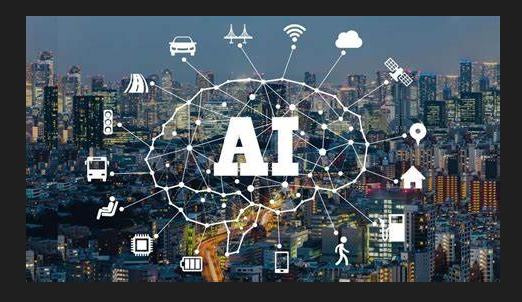
Artificial Intelligence (AI) is one of the most exciting and rapidly evolving fields in technology today. From self-driving cars to personalized recommendations, AI is transforming industries and creating new opportunities for innovation and growth. If you’re looking to learn how to start a career in AI, here is a step-by-step guide to help you get started and build a successful career in this dynamic field.
Step 1: Understand the Basics of AI
Before diving deep into AI, it’s crucial to understand the fundamentals. Familiarize yourself with key concepts such as machine learning, deep learning, neural networks, natural language processing, and computer vision. There are plenty of online resources, including articles, tutorials, and introductory courses, that can help you learn how to start a career in AI by providing a solid foundation.
Recommended Resources:
- Online Courses: Platforms like Coursera, edX, and Udacity offer beginner-friendly courses on AI and machine learning.
- Books: “Artificial Intelligence: A Modern Approach” by Stuart Russell and Peter Norvig is a comprehensive guide for beginners.
- YouTube Channels: Channels like 3Blue1Brown, AI Adventures, and Sentdex offer excellent explanatory videos on AI concepts.
Step 2: Learn Programming and Mathematics
AI relies heavily on programming and mathematics. Python is the most popular programming language in AI due to its simplicity and the vast array of libraries available. Additionally, a good grasp of mathematics, particularly linear algebra, calculus, statistics, and probability, is essential for understanding and developing AI algorithms.
Recommended Resources:
- Python Courses: Codecademy, Coursera, and edX offer courses to learn Python.
- Mathematics: Khan Academy and MIT OpenCourseWare provide free courses on linear algebra, calculus, and statistics.
Step 3: Get Hands-On Experience with AI Projects
Learning by doing is crucial in AI. Start with small projects to apply what you’ve learned and gradually move to more complex tasks. Kaggle, a platform for data science competitions, is an excellent place to find datasets and engage in real-world AI problems.
Project Ideas:
- Image Classification: Build a model to classify images into different categories.
- Chatbot Development: Create a chatbot that can answer questions or assist users.
- Recommendation System: Develop a recommendation system for movies, books, or products.
Step 4: Master Machine Learning and Deep Learning Frameworks
To build and deploy AI models effectively, you’ll need to become proficient in machine learning and deep learning frameworks such as TensorFlow, Keras, PyTorch, and Scikit-Learn. These tools provide the necessary infrastructure to develop, train, and test AI models.
Recommended Resources:
- TensorFlow: The official TensorFlow website offers tutorials and documentation.
- PyTorch: The PyTorch website provides comprehensive guides and resources.
- Keras: Keras documentation is an excellent starting point for deep learning.
Step 5: Join AI Communities and Network
Networking is vital in the tech industry, including AI. Join AI communities, attend conferences, participate in hackathons, and engage in online forums to connect with other AI enthusiasts and professionals. Networking can provide valuable insights, mentorship, and opportunities for collaboration.
Recommended Communities:
- AI Meetups: Platforms like Meetup.com host AI and machine learning meetups.
- Online Forums: Reddit, Stack Overflow, and specialized AI forums are great places to discuss AI topics.
- Conferences: Attend AI conferences such as NeurIPS, ICML, and CVPR.
Step 6: Pursue Advanced Education and Certifications
While not mandatory, advanced education such as a master’s degree or certifications in AI can enhance your knowledge and make you more competitive in the job market. Many universities and online platforms offer specialized programs in AI and machine learning.
Recommended Programs:
- Master’s Degrees: Universities like Stanford, MIT, and Carnegie Mellon offer AI programs.
- Certifications: Coursera, edX, and Udacity offer AI certifications.
Step 7: Stay Updated and Keep Learning
AI is a rapidly evolving field, and staying updated with the latest research, tools, and trends is crucial. Follow AI news, read research papers, and subscribe to AI journals and blogs to keep your knowledge current.
Recommended Resources:
- AI News Websites: AI News, Towards Data Science, and Medium.
- Research Papers: arXiv.org is a repository of research papers in AI.
- Journals and Blogs: Subscribe to journals like the Journal of Artificial Intelligence Research (JAIR) and blogs like OpenAI.
Conclusion
Breaking into artificial intelligence requires dedication, continuous learning, and practical experience. By following this step-by-step guide, you can learn how to start a career in AI and build a strong foundation in this cutting-edge field. Remember, the journey to becoming an AI expert is ongoing, so stay curious, keep experimenting, and never stop learning.
The importance of networking in the tech industry






